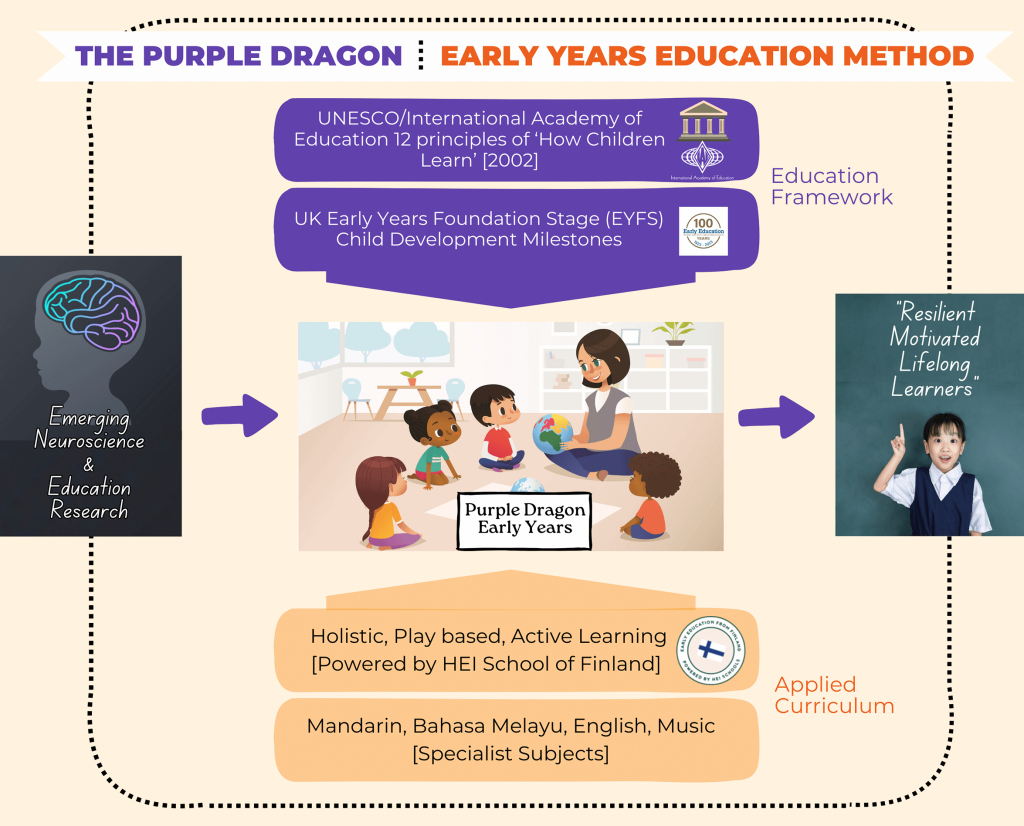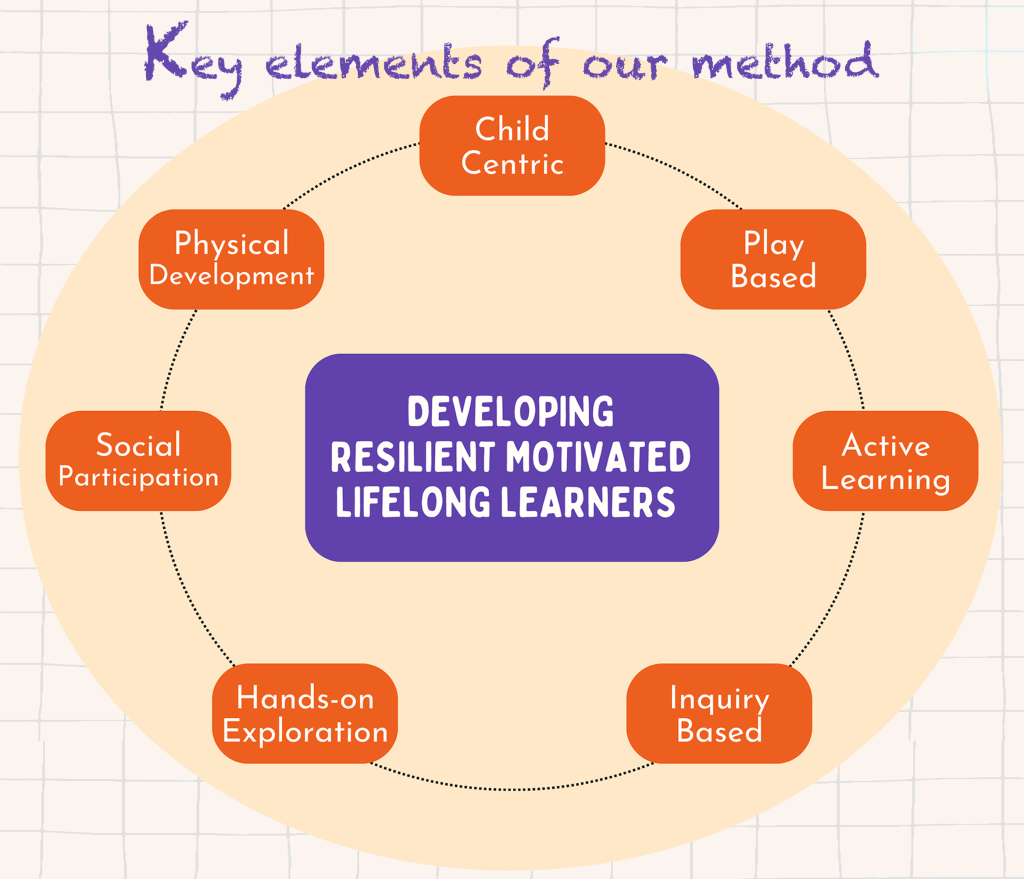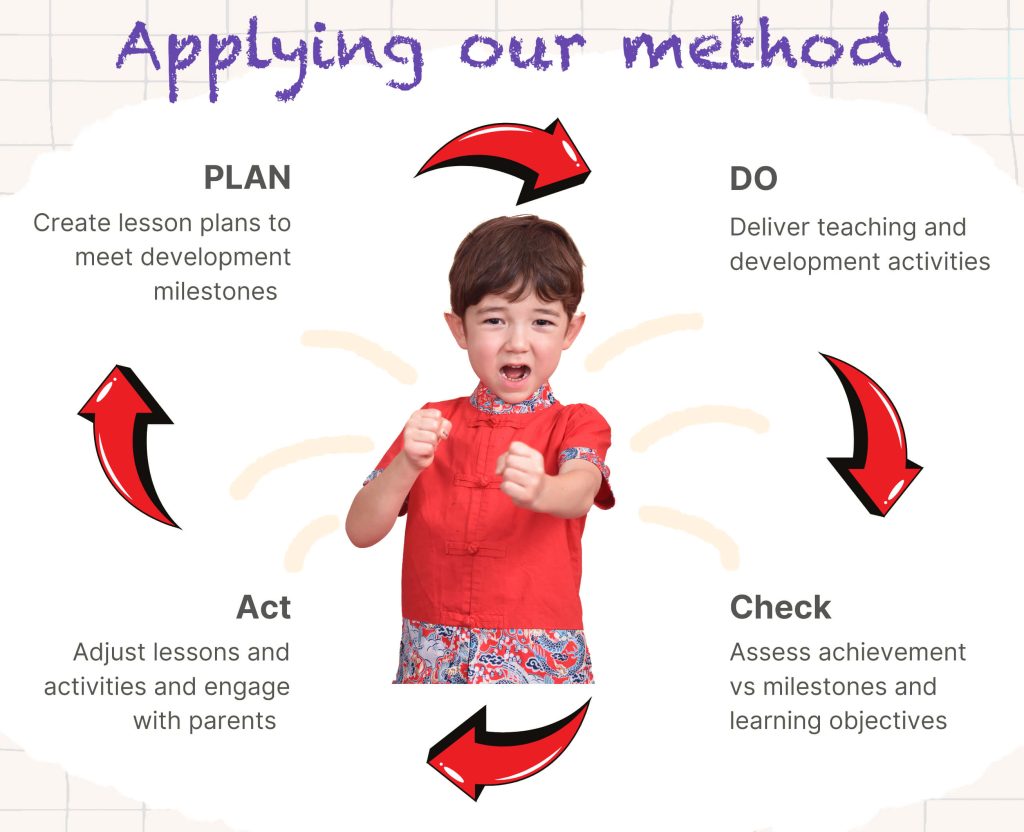The Purple Dragon approach is rooted in tried and tested child education research overlayed with emerging neuroscience about how children learn, develop and thrive, and crucially what might interrupt and block that development. This knowledge, based on in-depth research by our founders, has been curated to create an optimised environment for children to become resilient, lifelong motivated learners.
By maximising the vital early years brain and physical development opportunity that nature bestows and harnessing innate curiosity and thirst for understanding, we aim to prepare children not just for primary school but for life by teaching them how to learn, how to think for themselves and to ask questions.
Our approach is underpinned by the following technical elements:
In addition, we include specialist Mandarin, Bahasa Melayu, Music and more.


Our ethos is first and foremost predicated on putting children at the centre of everything we do. Countless studies have shown that play-based learning is more durable and stimulates early brain pathway development better than traditional instructive lecturing. In fact, on average, it takes approximately 400 repetitions to learning something new, unless the learning takes place via play, in which case it only takes 10-20 repetitions!
Similarly, inquiry based, hands on learning and active rather than passive learning yields better results because children are engaged and interested in the activities and achieve understanding of the topic rather than being bored by instruction and trying to commit things to memory without full understanding (so-called rote learning).
To this we also add social participation, where children not only learn social skills and teamwork but also learn from each other.
The final element is physical activity to strengthen their bodies, develop coordination skills and because exercise stimulates and keeps the brain healthy. In particular, outdoor play is important for children to get fresh air, interact with the outside world and, as studies have shown, to minimise the chances of self-induced myopia (short- sightedness). In Taiwan, for instance, the government stipulates 2 hours of outdoor activity per day.
Our Approach is rooted in continuous improvement. Lesson plans are prepared by our teachers, overseen by our Head teacher, appropriate to the age group and stage of the academic year. Our teachers practise in-flight constant assessment of each child’s progress week to week. Periodically the teaching staff assess the entire group against the EYFS and specific learning objectives milestones applicable. Lesson plans and any specific individual actions necessary are then built into the next periods planning and any specific issues addressed with parents. This may extend to other provisions such as physical exercise and nutrition if specific issues are noted that requires changes or additions.
